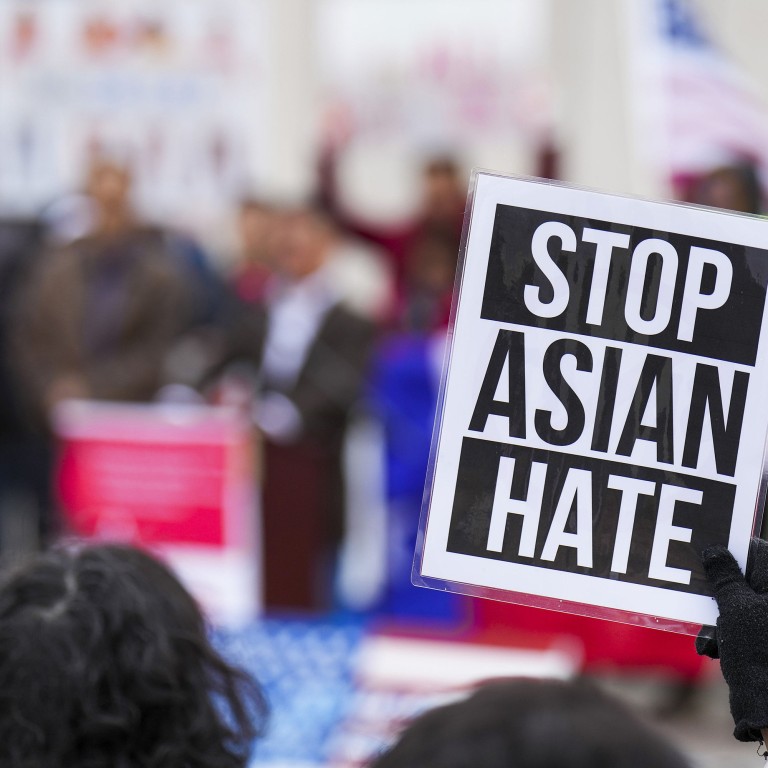
Asian-Americans should prepare for more hate, committee warns
- Despite the rollback of a Justice Department programme, a ‘major chill’ has been created and is likely to worsen, panellists say in California
- ‘People look for someone to blame. Both political parties say China is the enemy and we have that look.’
Although the US Justice Department’s China Initiative – which fuelled mistrust toward Asian-Americans – may have ended, the community would be wise to brace for even greater discrimination, violence and hate in the near future, speakers at a conference warned Saturday.
The 2024 presidential election and a string of US-China geopolitical issues – including recent news of a Chinese surveillance balloon crossing the US and reports of de facto Chinese police stations operating on US and Canadian soil – are likely to make things worse, according to panellists at the Committee of 100’s annual conference in San Jose, California.
“It’s clear that China and the US are strategic and economic competitors,” said Buck Gee, regional chair of the Committee of 100, a leading Chinese-American civic group. “People look for someone to blame. Both political parties say China is the enemy and we have that look. And there are people who are suffering and see us as the enemy.”
The China Initiative, which was launched in November 2018 by the Trump administration, aimed to stem economic espionage and theft of trade secrets and intellectual property by China. Critics say the programme racially profiled Asian-Americans and ruined careers, particularly those of professors and researchers at US universities who failed to disclose their affiliations with Chinese institutions. Many of the cases were dropped for lack of evidence.

“The attacks on the loyalty of Chinese Americans, and the way in which the government’s going about doing it, has had an impact on us with the segue into hate crimes [directed at] Chinese-Americans and Asian-Americans in general, because they ‘all look alike’ and are a danger and a threat to national security,” said Brian Sun, a partner with the Norton Rose Fulbright multinational law firm. “This is just the kind of thing we have to step up and combat – balanced against the concerns of national security.”
Although the initiative ended last year, it has created a major chill in the academic community that could have lasting damage on US research and competitiveness.
Reuben Chen, a board member of Monte Jade West Science and Technology Association representing Taiwanese tech workers, said he has had people tell him they no longer hire Chinese postdoctoral workers for fear it could lead to an investigation of their institution.
“The law and guidelines aren’t that clear. There’s a lot of vagueness and people don’t know when they’re crossing over any lines,” Chen said. “Some of the charges that are ultimately brought don’t seem to rise to the level of a national security concern. It’s more like a reporting violation or a confusion the professor had.”
But Jeff Fields, assistant special agent in charge with the FBI, said the agency does not target or investigate based on race or ethnicity, even as he acknowledged that the agency could better address minority concerns.
Asian-Americans face many hurdles to greater acceptance and influence: experts
Fengmin Gong, chairman of the Hua Yuan Science and Technology Association representing the mainland Chinese tech industry, said that he was wary of appearing on a panel with an FBI agent. He also said he is hesitant to advise young Chinese professionals to work in the US these days.
Gong said that the politics around these investigations is “causing a lot of concern,” and rather than “wasting taxpayer money” the focus should be on more constructive initiatives.
Some panellists said universities need to make sure their professors are not careless, such as bringing research-laden thumb drives to China, but also that investigators need to better distinguish between sensitive scientific data and readily available information.
“It sounds like there are a few stupid investigators, too, who don’t understand the science,” Gee said.
Fields, an African-American, said he understands what it’s like to have your loyalty and rights as an American questioned because of your appearance.

But he said that China threatens people on US soil and represents a national security threat and that many of the allegations of bias against the FBI derive from a misunderstanding of how evidence is collected and cases pursued.
Chinese-Americans, meanwhile, said their community should brace for more collateral damage ahead as Washington increasingly frames the Chinese Communist Party as its arch nemesis, an echo of the 1950s “Red Scare”.
“We’re going to get caught up in it. You can’t ignore it. We have to try to find ways to deal with it, media wise, political and otherwise,” said Sun, adding that he expects new initiatives to be unveiled replacing the China Initiative.
“This is a throwback to the ’50s. It’s coming back, history is repeating itself in certain aspects of our political system,” Sun said. “Everything is CCP, CCP, and you’re going to see a lot more of it over the coming election. Be vigilant because it’s going to have an anti-Chinese-American backlash. So just beware.”

